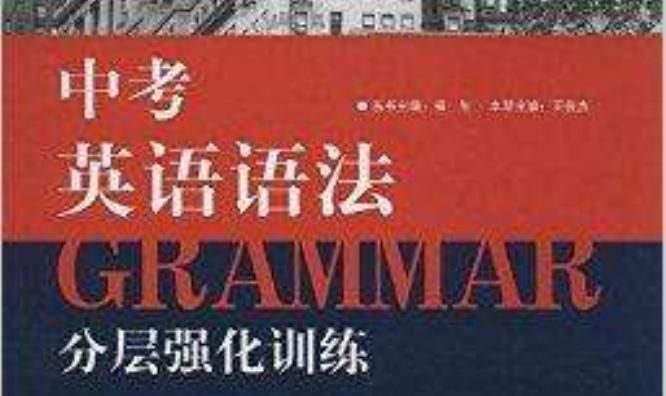本文目录
英语语法中的重点难点是什么
英语语法中的重点难点
导语:英语的语法很复杂,有很多知识点是很难掌握的,下面是我收集整理的英语语法中的重点难点,欢迎参考!

主谓一致常考难题:
1. Five minutes is enough to do this exercise.
Each boy and each girl wants to serve the people in future.
More than one student has seen the film.
Many a ship has been damaged in the storm.
More members than one are against your plan.
一些有两个部分构成的名词表示衣物或工具作主语时, 谓语通常用复数形式:glasses, clothes, trousers, shoes, compasses, chopsticks, scissors等。
但如果主语用a kind of , a pair of , a series of等加名词构成时, 谓语动词一般用单数形式。A pair of shoes was on the desk.
并列主语如果指的是同一个人、同一事物或同一概念时, 谓语动词用单数形式, 这时and后面的名词没有冠词。例如:
Truth and honesty is the best policy.
The girl's teacher and friend is a young doctor.
To love and to be loved is the great happiness.
Going to bed early and getting up early is a good habit.
A knife and fork is on the table.
当主语后面跟有as well as, as much as , no less than, along with, with, like, rather than, together with, but, except, besides, including, in addition to等引导的词组时, 其谓语动词的单、复数按主语的单、复数而定。例如:
The teacher as well as the students was excited.
The room with its furniture was rented.
2. A (great) number of修饰可数复数名词, 谓语动词用复数; a great deal of,a large amount of 修饰不可数名词, 其短语作主语时, 谓语动词用单数。
3. 关系代词who, that, which等在定语从句中作主语时, 其谓语动词的数应与句中先行词的数一致。例如:
Those who want to go please sign your names here.
Some of the energy that is used by man comes from the sun.
4. 季节、月份、星期、节日、假日、一日三餐、学科名称,球类、棋类名词名称前一般不加冠词。
1/2 one(a) half 1/4 one(a) quarter
5. 形容词的顺序:
系动词be,grow,get,become,feel,appear,prove,seem,look,keep,smell,taste,sound,turn,remain限定词+数量形容词(序数词在前,基数词在后)+性状形容词+大小、长短、高低等形体+新旧+颜色+国藉+材料
Those three beautiful large square old brown wood table
6. 某些以a-开首的形容词例如:afraid,alike,alone,asleep,awake, alive 等只能作表语,不能作定语。
某些以-ly结尾的词是形容词而不是副词:friendly,lively, lovely,lonely,likely,deadly,silly,orderly, timely等。
7.bad/ill,badly worse worst little less least表示一方不及另一方时,用“less+原级+than”的结构表示:This room is less beautiful than that one.
表示一方超过另一方的程度或数量时,可在比较级前加表示程度的状语,如:even,a lot,a bit,a little,still,much,far, yet, by far等修饰:He works even harder than before.
注意:by far 通常用于强调最高级。用于比较级时,一般放在比较级的后面, 如放在前面,应在二者中间加“the”。He is taller by far than his brother.
He is by far the taller of the two brothers.
某些以-or结尾的形容词进行比较时,用to代替than。superior,junior,senior等。He is superior to Mr Wang in mathematics.
在比较从句中为了避免重复通常用that(those),one(ones)代替前面出现的名词。that指物,one既可指人,也可指物。that可代替可数名词单数和不可数名词,而one只能代替可数名词。例如:
The book on the table is more interesting than that on the desk.
A box made of iron is stronger than one made of wood.
8. 表示倍数的比较级有如下几种句型:
A is three (four,etc.) times the size (height, length, width,etc) of B.
The new building is four times the size (the height) of the old one.
这座新楼是那座旧楼的四倍大(四倍高)。[高三倍]
A is three (four, etc.) times as big (high, long, wide, etc.) as B.
Asia is four times as large as Europe.亚洲是欧洲的四倍大。
A is three (four,etc.) times bigger (higher, longer, wider) than B.
例如:Your school is three times bigger than ours.
你们的学校比我们的学校大三倍。表示两倍可以用 twice 或 double。
9. 表示“最高程度”的形容词,如excellent,extreme,perfect等,没有最高级,也不能用比较级。
如果复数名词前有many、few,不可数名词前有much、little等表示量的形容词时,该用so而不用such。如:
I've had so many falls that I'm black and blue all over.
Mr White got so little money a month that he could hardly keep body andsoul together.
但little不表示数量而表示“小”的意思时,仍用such。如:
They are such little children that the they cannot clean the house by themselves.
10. almost与nearly
在very, pretty, not后用nearly, 不用almost。例如:I'm not nearly ready.
在any, no, none, never前用almost, 不用nearly。例如:I almost never see her.
11. need 表示“需要”或“必须”,作情态动词时,仅用于否定句或疑问句中。在肯定句中一般用must, have to, ought to或should 代替。例如:
You needn't come so early.
Need I finish the work today? --Yes, you must.
注意:needn't have done“表示本来不必做某事而实际上做了某事”。例如:You needn't have waited for me.
“should have done”表示应该做到而实际上没有做到。
You should have started earlier.
“ought to have done”表示过去应做某事而实际未做。
You ought to have helped him (but you didn't)
书报的标题,小说等情节介绍常用一般现在时。
表示感觉,愿望和状态的某些动词如have, be, hear, see, like等词一般不用进行时。
有些动词形式上是主动结构,但表示被动的意思。常见的有可和 well, easily 等副词连用的不及物动词sell,wash,write,read,clean,cook等。例如:
The cloth washes well.这布很经洗。
The new product sells well.这新产品很畅销。
The pen writes well.这支笔很好写。
在动词 arrange,command, demand, desire,insist, order,propose, request, require, suggest等后面的宾语从句中用“(should)+ 动词原形”(虚拟语气)例如:
We suggested that we (should) have a meeting.
We insisted that they (should) go with us.
The doctor ordered that she (should) stay in bed for a few days.
He demanded that we (should) start right away.
作advice,idea,order,demand,plan,proposal,suggestion,request等名词的表语从句和同位语从句,其谓语动词要用虚拟语气的结构“(should)+动词原形”。例如:We all agreed to his suggestion that we(should) go to Beijing for sightseeing.
My idea is that we (should) do exercises first.
在feel, hear, notice, observe, see, watch, have, let, make等词后的补足语中,不定式不带to。但是这些句子如果变成被动结构时,就必须带to。例如:I often hear him sing the song.
He is often heard to sing the song.
注意:不定式动词在介词but, except, besides后面时,如果这些介词之前有行
为动词do的各种形式,那么,这些介词后的`不定式不带to,否则要带to.如:
She could do nothing but cry.
What do you like to do besides swim?
I have no choice but to go.
作定语的不定式如果是不及物动词,或者不定式所修饰的名词或代词是不定式动作的地点、工具等,不定式后面须有相应的介词。例如:He is looking for a room to live in. There is nothing to worry about.
Please give me a knife to cut with.
There / It is no use/ good/ not any use/ good/ useless doing sth.
动词后可以用动名词作宾语,但不能用不定式:
admit,appreciate, avoid, consider, delay, enjoy, escape, excuse, feel like, finish, forgive, give up, imagine, include, keep, mention,mind,miss,practise, put off, resist, risk, suggest, can't help, can't stand(无法忍受)等。
I tried not to go there.(我设法不去那里。)
I tried doing it again.(我试着又干了一次。)]
mean to do 有意... mean doing意味着...
I mean to come early today.(我打算今天早些来。)
Missing the train means waiting for another hour.
(误了这趟火车意味着再等一个小时。)
allow, advise, forbid, permit
We don't allow smoking here. We don't allow students to smoke.
动词need,require,want作“需要”解,其后跟动词作它的宾语时,若表示的含义是被动的,必须用动名词,或不定式的被动式。例如:
The window needs(requires, wants)cleaning(to be cleaned).
在短语devote to, look forward to, pay attention to, stick to, be used to, object to,thank you for, excuse me for 等后的动词也必须用动名词形式:I look forward to hearing from you soon.
Badly polluted, the water cannot be drunk.(原因)
Being written in haste, the composition is full of mistakes.
(原因,强调写的过程,故应用现在分词一般被动式)
Having been deserted by his guide, he couldn't find his way through the jungle.(为了强调已完成的动作)
Asked to stay, I couldn't very well refuse.
这里 asked 可能意味着 having been asked, 也可能意味着when/since I was asked, 但用了 having been asked 就不会有歧义。
下面句中过去分词表示的时间与谓语动词所表示的时间相同,所以不能代之以强调先于谓语动词的现在分词完成被动式。例如:
Covered with confusion, I left the room.我很窘地离开了房间。
United, we stand; divided, we fall. 团结则存,分裂则亡。
He used to live in London, use(d)n't he /didn't he?
There used to be a cinema here before the war, use(d)n't there /didn't there?
Such things ought not to be allowed, ought they?
He ought to be punished, oughtn't he?
但在正式文体中,用ought we not形式。例如:
We ought to go, ought we not?或We ought to go ,should we not?
含有情态动词must的句子表示推则,作“想必”解时,疑问部分不可用mustn't。若前句强调对现在情况的推测,疑问部分用aren't(isn't)十主语,例如:You must be tired,aren't you?若陈述部分的must表示“有必要”时,附加疑问句部分则用needn't。例如:You must go home right now, needn't you?
当mustn't 表示禁止时,附加疑问部分一般用must。如:
You mustn't walk on grass, must you?
前句谓语动词是must have+过去分词时,若前句强调对过去情况的推测(一般有过去时间状语),疑问部分的谓语动词用didn't+主语;若前句强调动作的完成,疑问部分的谓语动词用haven't(hasn't)+主语, 例如:
He must have met her yesterday, didn't he?
You must have seen the film, haven't you?
陈述句谓语部分出现否定词缀时(前缀或后缀),疑问部分仍用否定结构。例如:He is unfit for his office, isn't he?
如果陈述部分包含有no, never, hardly, seldom, few, little,nowhere, nothing等否定或半否定词时,疑问部分用肯定形式。例如:He is hardly 14 years old,is he?
如果陈述部分的主语为everyone,someone,no one等不定代词,其疑问部分的主语可用he,也可用they。
Everyone knows his job, doesn't he?
Everyone knows their job,don't they?
No one was hurt,were they?
I'm late, aren't I?
One can't be too careful,can one(you)?
Have a cup of tea, will you?
Let's go there,shall we? Let us go there,will you?
同位语从句跟在名词后面,进一步说明该名词的具体内容。引导同位语从句的名词主要有fact, news, promise, idea, truth等。连接词用that (不用which)及连接副词how, when, where, why等。例如:
His delay is due to the fact that the car went wrong halfway.
The news that our team has won the match is true.
She asked the reason why there was a delay.
关联词只能用whether不能用if表示“是否”的情况如下:
A)在表语从句和同位语从句中。例如:
The question is whether the film is worth seeing.
The news whether our team has won the match is unknown.
B)在主语从句中,只有用it作形式主语时,whether和if都能引导主语从句,否则,也只能用whether。例如:
Whether we shall attend the meeting hasn't been decided yet.
It hasn't been decided whether(if)we shall attend the meeting.
C)在介词之后。(介词往往可以省略)例如:
It all depends (on) whether they will support us.
D)后面直接跟动词不定式时。
He doesn't know whether to stay or not.
E)后面紧接or not 时。
We didn't know whether or not she was ready.
F)引导让步状语从句,只能用whether。
Whether you like it or not, you must do it well.
G)用if会引起歧义时。例如:Please let me know if you like it.
该句有两个意思:“请告诉我你是否喜欢”。
或“如果你喜欢,请告诉我。”用了whether就可以避免。
在下面几种情况下必须用“that”引导定语从句:
1)先行词是不定代词:all,few,little, much,something,nothing,anything等。All that we have to do is to practise every day.
2)先行词被序数词或形容词最高级所修饰。
The first lesson that I learned will never be forgotten.
3)先行词被all,any,every, each, few,little,no,some, 等修饰。
I have read all the book (that) you gave me.
4)先行词被 the only, the very, the same, the last 修饰时。
He is the only person that I want to talk to.
5)先行词既有人又有物时。They talked of things and persons that they remembered in the school.
先行词是表示地点时,要根据从句的谓语动词是及物的还是不及物的。如果是及物的就用that(which),否则用where。
This is the house where he lived last year.
This is the house that (which) he visited last year.
用no sooner…than和hardly…when引导的从句表示“刚……就……”。主句中的动词一般用过去完成时,从句用过去时;而且主句一般倒装,把助动词had提到前面。例如:Hardly had I entered the room when I heard a loud noise.
代词作主语时,主谓语序不变。Here it is. Here he comes.
当句首状语为表示地点的介词词组时也常常引起全部倒装。
South of the city lies a big steel factory.
From the valley came a frightening sound.
表语置于句首时,倒装结构为“表语+连系动词+主语”。
Present at the meeting were Professor White,Professor Smith and many other guests.
Gone are the days when they could do what they liked to the Chinese people.
Among the goods are Christmas trees, flowers, candles and toys.
He has been to Beijing. So have I.
Li Wei can't answer the question. Neither can I.
部分倒装
用于省略if的虚拟条件状语从句。Had you reviewed your lessons,you might have passed the examination.
3.用于“形容词(或名词、动词)+as(though)引导的让步状语从句中。例如:Pretty as she is ,she is not clever. Try as he would, he might fail again.
如果从句的表语是名词,其名词前不加任何冠词。
Child as he was, he had to make a living.
用于no sooner…than…,hardly…when和not until的句型中。Not until the teacher came did he finish his homework.
用于never,hardly,seldom,scarcely, barely, little,often,at no time,not only,not once等词开头的句子。
Never shall I do this again. Little did he know who the woman was.
6.用于以only开头的句子(only修饰副词,介词短语或状语从句时)。
Only in this way can you master English.
Only when he told me did I realize what trouble he was in.
如果only后面的词组不是状语,则不用倒装。
Only Wang Ling knows this.
;英语语法为什么这么难理解
这都是传统教育害的。没有学不会的学生,只有不会教的老师。
传统学校教育中,老师和课本自己都没有搞清英语语法,就这样照本宣科稀里糊涂的教学生。非常系统的英语语法被教的七零八落,整个初高中大学阶段的语法也就是数十节课就可以讲透的内容却折磨了学生数十年。学到最后,越学越糊涂,越学越心虚,只能死记硬背,用起来僵化生硬。
下面来讲解什么是语法,以及中国学生为什么要学习语法。
在回答语法是什么之前,我们先看看小孩是如何学习语言的。
小孩是如何学习中文母语的?
一个小孩自生而长,父母一字一句的教,不断的纠正,自然内化了小孩正确的语言结构和顺序。 所以我们掌握母语没有觉得多难,觉得是很自然的事情。在孩童时期学话也没有家长会给小孩讲语法。
在看看小孩是如何学习英语的?
绝大多数的中国小孩学习英语仅仅是在课堂上的数小时,一个老师对那么多小孩,每个小孩一节课可以说几句?一天可以说几句?如果说错了会有家长老师即使的给予纠正吗?正式因为这个原因,英语的语言结构和思维就无法内化在中国小孩的脑海里,同时又有中文结构顺序的排斥。
这也就是为什么学习英语要学习语法的起因。
那么什么是语法呢?
语法是语言的法则、语言的精华、语言规律的高度凝缩。
国内的小孩既然无法获得大量的英语练习去内生语法规范,那么就只有学习这种生硬的语法规则来保证我们能够正确的读写英语了。 这就是为什么国内小孩要学习语法的原因。
很多学生会觉得语法难,那么语法真的难吗?
语法一点也不难。之所以觉得难可以给你举个简单例子你就会明白。
比如你站在一面满是雾气的玻璃窗后面看景色,那么任你多聪明,视力多么好,你就是看不清楚。这时你也许就怀疑自己不够聪明,视力不够好,而实际情况是因为有这层迷雾造成了你无法看清。那么一旦把这层迷雾擦除,你瞬间就会觉得世界清明起来,风景看的一清二楚,简单明了。
现在应该明白了,之所以很多人觉得语法难,什么从句,主句,单句,复句,时态、非谓语,语气等你不理解,是因为有这层迷雾,传统的英语教育,不但无法擦除这层迷雾,反而描的更黑,教的糊涂,学的更加困惑。
老师照本宣科,没有讲透,学生并没有真正理解,就不得不死记硬背,即使死记硬背记住了,也不能算真正掌握而能灵活运用。
整个小学、初中、高中、甚至大学阶段的语法学习,也就数十节课就可以系统透彻的学完,但是传统教育却折磨了学子们数十年,却越学越糊涂。传统英语教学把英语语法的学习安排的非常冗长和混乱,毫无章法和体系,今天讲一点,明天讲一点,彼此间生硬冷漠毫无内在联系和体系,本来非常有趣的英语语法,本应该是一讲就理解,就掌握的,却被弄得非常复杂繁琐,直接导致了很多学生厌学。
所以正确的英语学习顺序是先学透英语语法,建立一个强悍的英语语法思维,语法处理器,这时阅读和写作的语法和思维障碍已经解决,剩下的就是如何高效的攻克词汇了。
推荐华东理工大学的《英*语*思*维:解密英语语法的原理》,该书是国内第一本系统讲解英语语法原理和思维内涵的书,是第一本从语言原理层面完整系统的呈现英语语法全貌和完整框架体系的书。该书纠正了传统英语教育的诸多谬误,理清了英语学习的脉络,呈现给读者一个完整系统的英语语法框架体系。
也可以学习同名视频课程,短平快,十节课真正理解英语语法,适合那些英语语法混乱毫无章法同学,也适合那些英语还不错,但是没学透无体系遭遇瓶颈无法突破的同学,看完后,对英语的理解有脱胎换骨之感。
建立了英语语法的整体框架结构,理解了英语语法所蕴含的思维内涵后,你就不会再觉得语法乏味。
学透语法之后的英语继续学习,就可以通过精看美剧进行词汇的学习,听、说、读、写的锻炼。
利用高效系统建立起来的语法知识体系后,可以欣赏美剧、阅读新闻,交友娱乐,快乐的享受英语给你带来的乐趣。

英语什么语法最难学
首先时态是难点之一,是我们学语法时最开始就该学习明白的,不然以后读英文会处处碰壁;之后就是从句,包括名词从句、定语从句和状语从句。从句看似复杂,其实不难,需要多分析例子;最后就是非谓语,包括动名词、分词、不定式和短语。希望能够帮助到你。

英语语法中最难的部分是哪些
英语语法真正难的部分有两点:
1、对英语语法理解的广度不够,缺乏系统性,看不到英语语法的全貌,始终陷于英语语法的迷雾森林,无法自拔。
2、对英语语法理解的深度不够,并没有真正理解英语具体语法现象背后的原理,无法准确的理解时态,把握时态和应用时态。

英语语法是“结构非常清晰、框架非常完整、逻辑极其严密、高度系统完善”的。
学习英语的同学可以以上面4点作为标准来衡量自己对英语语法的理解和掌握,如果达不到以上四点标准,那么说明你的英语语法需要重新回炉。说明你对英语语法的学习宏观上不够系统,微观上不够透彻,没有窥见英语语法的全貌。
以上就是关于英语语法很难学的例子,英语语法中的重点难点是什么的全部内容,以及英语语法很难学的例子 的相关内容,希望能够帮到您。
